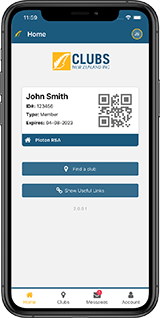Covid-19 restrictions removed
31 August 2023
Earlier this month, Health Minister, Hon Dr Ayesha Verrall announced that all remaining Covid-19 requirements were to be removed effective 12.01am, Tuesday 15 August.
Mandatory isolation for Covid-19 is no longer required. However, the Ministry of Health’s guidance is that people should self-isolate for at least five days if they are unwell, or they test positive for Covid-19. The obligation for the wearing of face masks for visitors to healthcare facilities has also been removed.
Covid-19 Leave Support Scheme
The Covid-19 Leave Support Scheme also ended on 15 August 2023 and associated payments will no longer be available through the Ministry of Social Development for employees who tests positive for Covid-19 after this date.
What should you do if your employees have Covid-19?
If an employee has Covid-19 and is unable to work, then usual considerations relating to sickness and the taking of sick leave apply. This means if an employee has paid sick leave entitlement available, then they should utilise that in the first instance.
Alternatively, if the employee has exhausted all of their paid sick leave entitlement, or have no entitlement available, then they may need to take unpaid sick leave, unless of course they are still fit enough to be able to work and can work from home.
An employee who has tested positive for Covid-19 should not be permitted to work at the employer’s premises because there is a risk of spreading the virus further. The employer and the employee may need to consider what the available options are:
- Taking paid sick leave;
- Taking unpaid sick leave;
- Working from home (if the employee is able to);
- Taking sick leave in advance of entitlement;
- Annual leave by agreement.
Can You Request a Medical Certificate?
Yes, an employer can request that an employee provide a medical certificate to support any period of absence for sickness, including Covid-19 at any time. There are rules relating to who pays for meeting expenses associated with obtaining a medical certificate in terms of paid sick leave entitlement under the Holidays Act 2003 (‘the Holidays Act’), which may need to be considered.
Alternatively, an employer may require an employee to produce a medical certificate at their own expense for any sick leave taken outside of their paid sick leave entitlements under the Holidays Act. However, an employer should have contractual provision under the terms of an employee’s employment agreement which makes this clear. Namely, wording that says if the employee has exhausted all of their entitlement to paid sick leave, then the employer may require them to produce a medical certificate at their own expense for unpaid sick leave. EAL’s employment agreement builder on the Employers Toolbox has this particular clause available. Outside of this wording, then the employer should pay associated costs in terms of the employee providing a medical certificate in the event the employer requires one.
The Ministry of Health still want RAT test results to be reported. As before, submissions of positive results will receive an SMS acknowledgement from the official 2328 or 2648 numbers to confirm the positive result.
An employer could accept evidence of this as proof of that the employee has Covid-19, thus saving the expense with requiring a medical certificate and additional pressure on the health system, i.e. time and resource in terms of providing a medical certificate.
More information on sick leave and sick leave entitlements can be found on MBIE's website here

